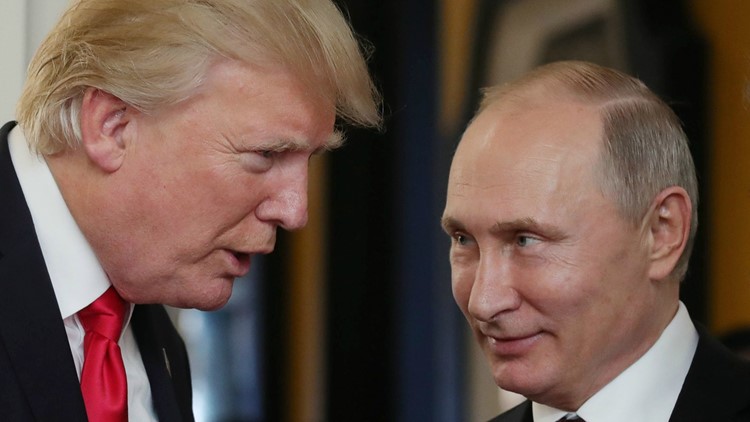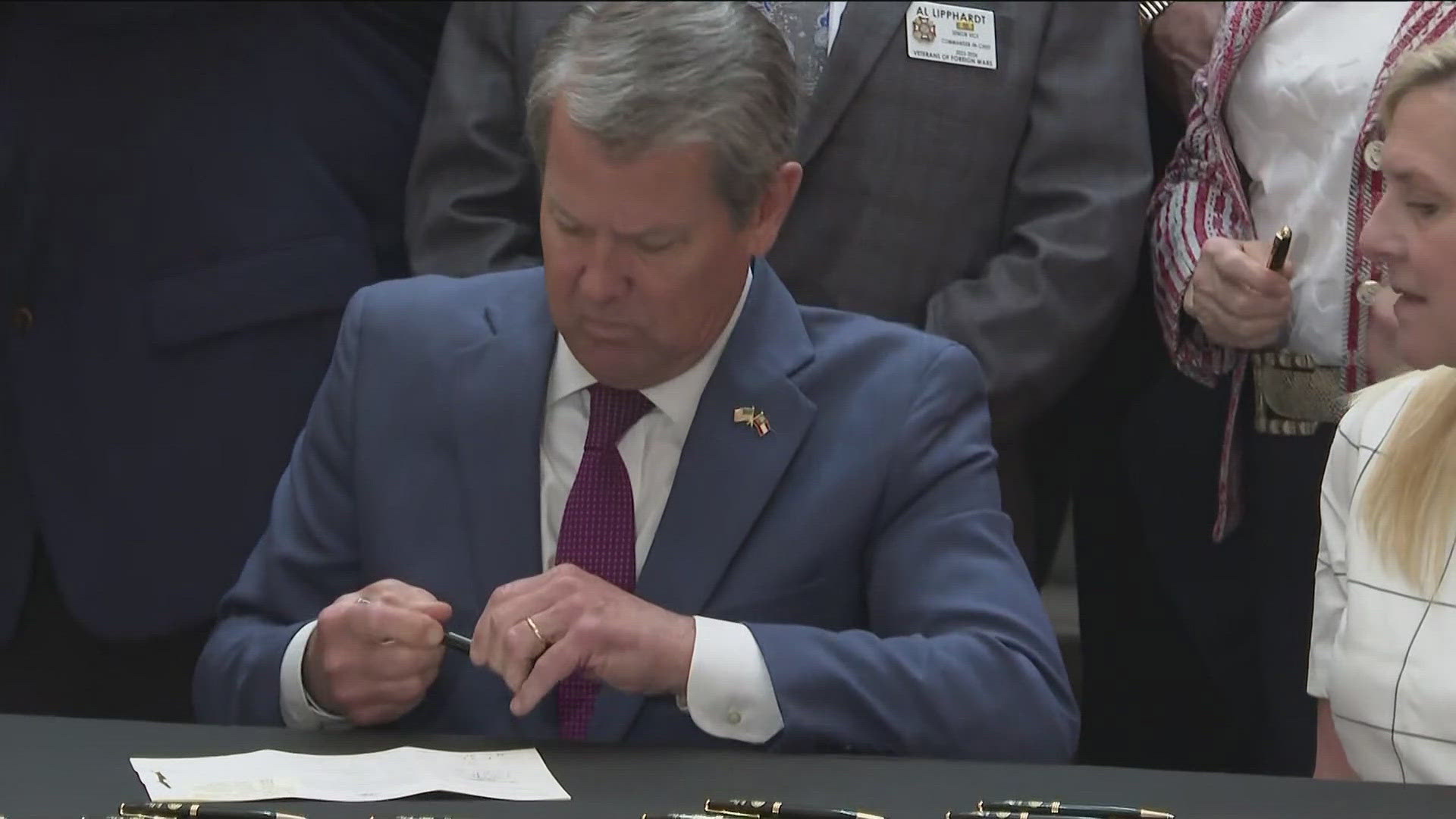There’s a lot of talk around the recent meeting between President Trump and Russian President Vladimir Putin.
Lawmakers had some scathing criticisms.
"His behavior is so inexplicable and so against the interests of the United States," Democratic Senator Chuck Schumer said.
Even senators from Trump’s side of the aisle were unimpressed with the President’s comments.
"I never thought I’d see an American president throw the intelligence community under the bus like that,” Arizona Republican Jeff Flake said.
Yes, many people are angry. But, why?
Both presidents touted the meeting as the first step in improving U.S.-Russia relations but an improved relationship with Russia is complicated in more ways than one.
To understand what it will take, it’s important to look beyond one meeting.
Let’s break it down.
Nuclear Weapons
In opening statements to the press, Putin seemed all for working together. As major nuclear powers, Putin said the U.S. and Russia have a responsibility to ensure global security.
It’s a big responsibility.
Since the 60’s, the focus on nuclear weapons has been making sure countries that don’t already have them won’t get them, and those that do work to get rid of them.
That’s what the non-proliferation treaty is for. The U.S. and Russia both signed it decades ago. To this day, both the U.S. and Russia still have thousands of nuclear weapons. Together, they hold almost 90 percent of the world’s nuclear capability.
But the two countries have a long history of tension than any attempts to be a united security force.
For about 45 years there was a Cold War and arms race between Russia and America with fear that either would launch a nuclear missile at any moment.
Even as recently as last year, the Kremlin hinted at using nuclear weapons as defensive measures against the U.S. over conflicts involving Ukraine.
They’ve also been accused of helping Iran with its nuclear capability, something America has been against.
Russian Meddling in Elections
During the presser, Putin once again denied that Russia tried to meddle in the 2016 election.
But the U.S. Intelligence agencies say there’s strong proof they did. They have indictments against 12 Russian agents to prove it.
More importantly, intelligence officials say there’s evidence the Kremlin meddles in democratic elections all over the world, hoping to sway results towards candidates who would benefit Russia’s interests.
Countries like Ukraine, Hungary, even France and Germany, have had to fight made-up stories and cyber-attacks during election season.
So, when Trump said he doesn’t see why Russia would have a reason to try messing with American elections, many wondered why the president would dismiss his own country’s intelligence and take Putin at his word.
President Trump later said he misspoke, and that he meant to say he could not see why Russia wouldn’t be behind election meddling. But not before members of the intelligence community had time to respond.
The Director of National Intelligence, Dan Coats, released this statement without White House approval:
“We have been clear in our assessments of Russian meddling in the 2016 election ... And we will continue to provide unvarnished and objective intelligence in support of our national security."
Democracy
When a reporter with the Associated Press asked about election meddling, Putin called both the U.S. and Russia democratic nations.
“I believe that Russia is a democratic state and I hope you’re not denying this right to your own country… do you believe the united states is a democracy?”
To that, we’d like to bring up one name: Alexei Navalny.
Of seven opposing candidates in the 2018 Russian presidential election, he was the only one pollsters said might have given Putin a run for his money. He was barred from entering the race on fraud charges- that he says were politically motivated- and he was later thrown in jail for protesting.
Putin was appointed the presidency in 1999, 19 years ago. He was re-elected in 2000 and has been the country’s leader since the beginning of the 21st century.
There are some young adults who cannot remember a time when Putin wasn’t the President of Russia.
So, if it is a democracy, it’s one very different from ours.
Trying to make peace is something everyone can admire, but the U.S. and Russia have a long history of being adversaries. At times, they’ve been strained allies.
U.S. Intelligence and lawmakers seem to agree that given the history of these two world powers, the amended relationship will take more than one summit meeting.



